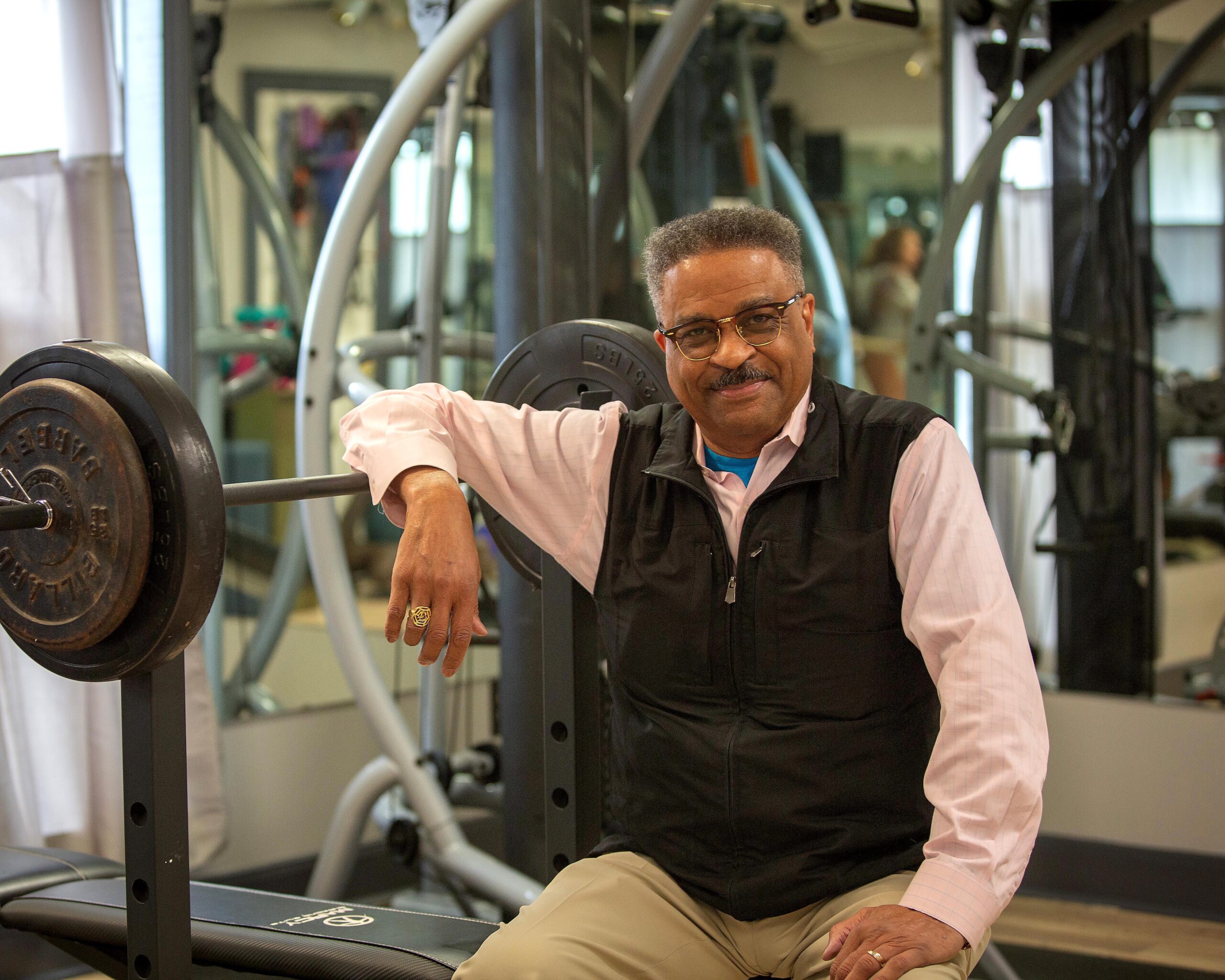On New Year’s Day 2021, Jules Edwards awakened for the first time in 28 years no longer a judge. His tenure on the state court bench since 1993 had officially ended. Though now in retirement, he kept with military precision the morning routine he had practiced as a judge: arise at five o’clock a.m., morning prayer, make the bed (everyday), workout in his home’s gym, and then breakfast.
Edwards for the next several months of retirement taught online courses to other judges. He filled his spare time by reading books on topics from education to philosophy to theology, expanded his workouts to two hours and spent more time with his wife and best friend Orida.
Retirement from public life suited Edwards. By his own admission, he is not a socialite. “Judges tend to lead lives of isolation. I have become very comfortable living a cloistered life. My wife cooks so we eat at home. We are homebodies. That means by definition that my social circle is pretty small. If God wanted me to have a friend other than my wife, he would have issued me one,” Edwards quips.
Part of Edwards’s seclusion also stemmed from his sense of duty as a judge to be objective. “A judge who has a lot of friends, a judge who is the life of the party, a judge who is a man about town, none of those things are skills relevant to the discernment of the truth and the application of the law to the facts. I don’t think we should select judges based upon a popularity contest.” His admitted “bookishness” and voracious reading also lend to seclusion though he sees this as an asset since judges, he contends, should be “involved in the life of the mind.”
Edwards’s retirement from public life, however, did not last. In December of 2021, a recording surfaced of Judge Michelle Odinet’s use of racial slurs. Edwards’s loss to Odinet in the November 2020 Lafayette City Court election made him the natural subject of speculation.
For his part, Edwards’s public thoughts on the Odinet video are characteristically measured. “I was disappointed about that kind of communication. I was surprised. It was unexpected behavior. I saw nothing but problems in the future. The attention was not favorable.”
Edwards refrained from thinking about running until Odinet resigned. “When she resigned, people started calling me: ‘What are you going to do?’ It was like a crescendo of questions. Emails phone calls, text messages: ‘Are you running?’ A series of questions. I talked to my wife. I prayed about it, and finally I said ‘yes’.”
Edwards’s decision to run again required coming to terms with the 57% to 43% defeat to Odinet. Concerning that defeat, Edwards’s voice took on a reflective tone. “Surprised. Amazed. I just couldn’t believe that that happened. I was convinced that what I said during the campaign was true ‘qualifications matter’ and that the people of Lafayette would want to select the most qualified, most experienced person. That didn’t happen.” Nevertheless, Edwards is optimistic for a different result this election. Edwards believes retirement gives him the additional time to meet and inform people about his qualifications that being on the bench during the 2020 campaign did not afford.
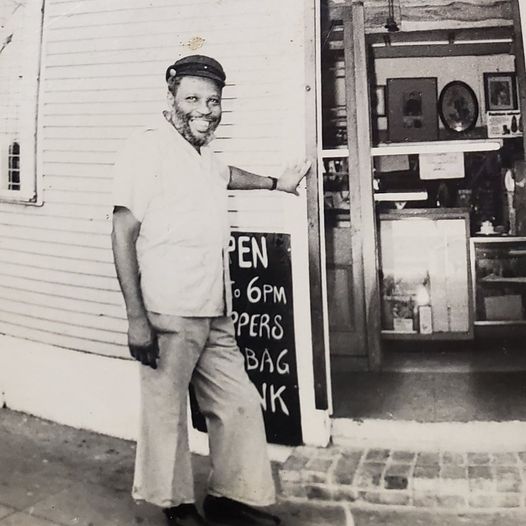
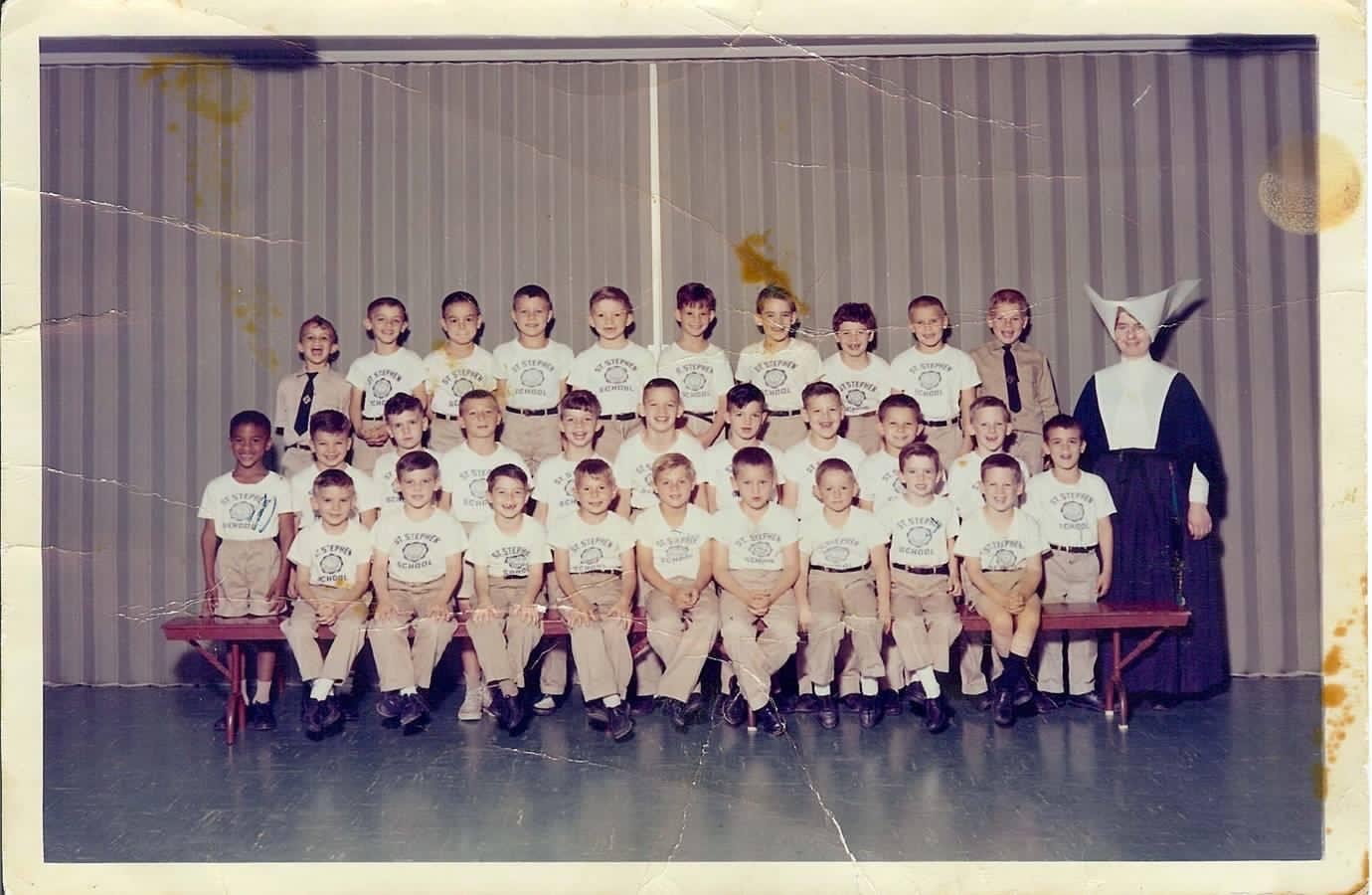
Edwards grew up between worlds in New Orleans. At home, his father was a small business owner running a shoe and luggage repair shop. At school, his education from first grade through law school was in predominantly white Catholic schools amongst Uptown mansions and along St. Charles Avenue. He was at times at St. Stephens the only black student in his grade. He matriculated to De La Salle High School, and then to Loyola University for both undergraduate and law school.
At Loyola, he again lived between the worlds of academics and the military having enlisted in the United States Marine Corps reserves as a student, he was later promoted to the rank of corporal, and then transferred to the Louisiana Army National Guard. He graduated from Loyola University and was commissioned as a second lieutenant, and then became a member of the Louisiana Army National Guard where he rose to the rank of Colonel until his retirement in 2007. His military service included stints in the Infantry, Artillery, and Judge Advocate General’s Corps. He believes his service as the 256th Infantry Brigade’s Inspector General honed his administrative skills.
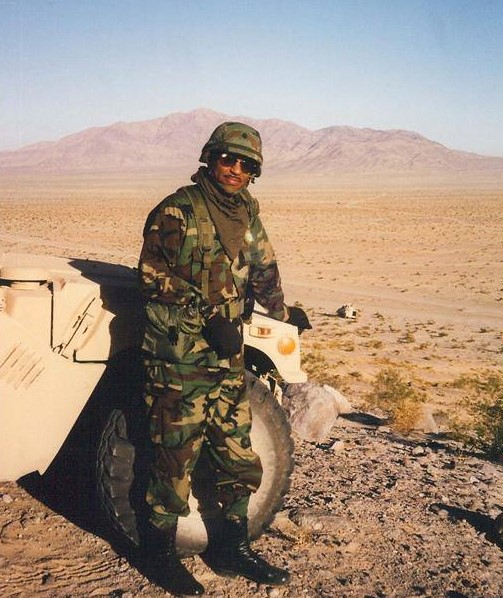
Edwards met Orida in the law library. “I tell teenagers you can always find good things in the library. We knew we wanted to start a firm together. We knew we wanted to get married but we were broke.” Upon graduating law school, he served as a public defender trying well over 150 jury trials.
Within a few years, unlike other New Orleanians who often view the rest of Louisiana as a different world, Edwards and his wife Orida saw great opportunities in Lafayette. Both had ties to Acadiana. She was from Arnaudville, his mother from Kaplan. For Edwards, being from New Orleans but transplanting to Lafayette seemed natural. Once they saved some money, they purchased property in Lafayette and began their general practice in 1988. Edwards relates, “Lafayette is a great place. It’s a college town. We have some beautiful churches. We have people who enjoy life. It’s more of a family friendly place. Coming to Lafayette was one of the best decisions of my life.”
Not long after opening their firm in Lafayette, Edwards landed a general staff position with the Louisiana State Senate which included work on the Committee on Crime and Drugs headed by then Senator John Hainkel, Jr. He commuted daily to Baton Rouge while also maintaining his Lafayette practice. Though the position was technical in researching and drafting legislation, he made connections with Acadiana’s political figures who would encourage him to run in 1992 for state court judge.
The Senate experience helped shape Edwards’s judicial philosophy and motivated him to run for judge. “We were knee deep in the war on drugs, get tough on crime, lock them up and throw away key. I had spent the prior year or so before staffing the Senate Select Committee on Crime and Drugs. I was absolutely convinced that this philosophy of lock them up and throw away the key was fiscally imprudent. We can’t afford that. Prison is expensive. We were going to spend more on housing and feeding per year than it costs to go to college.”
Edwards came to the conclusion that other forms of restitution and diversion programs for certain non-violent offenders best served Lafayette’s long-term interests. “However long you are successful at isolating someone in prison eventually they are coming home. When they are released from prison, they don’t leave here and go to Kansas. They come back to the place that sent them away. In this mentality of house and feed, there is not much rehabilitation going on. They are really learning how to be more proficient burglars and not getting caught.”
Despite having been in Lafayette for less than five years, Edwards resigned from his Senate position in the summer of 1992 to run for judge. He successfully campaigned for and won the 15th Judicial District Court judgeship for a six-year term.
Once on the bench, in addition to presiding over the entire spectrum of civil and criminal cases from multimillion dollar disputes to felonies, Edwards tackled finding the necessary judicial tools to affect the necessary criminal justice reform. Edwards found drug courts started in other states, specifically Florida, to be promising. He, along with allies in the District Attorney’s Office and other judges, pushed forward the funding and creation of a drug court in the 15th Judicial District whose policy Edwards authored.
Edwards saw the drug court’s immediate benefits. Key reforms included mandatory community service, screening, mental health counseling, and drug treatment and testing for certain non-violent criminals who remained out on probation rather than incarcerated. Edwards relates that drug court participants statistically had fewer probation revocations or recidivism. This, he asserts, translated into saving public resources, freeing up necessary jail space, and helping participants to remain employed and otherwise productive citizens by avoiding “one size fits all” incarcerations.
Edwards faced no opposition in 1998 for a second term. Before his second term ended in 2004, Edwards made a decision. He registered as an independent no longer wanting to be viewed as a judge in the blue and red worlds of party politics. He explains this decision, “I wanted to communicate that I was on a trial court, and trial court judges do not set policy. I wanted to clearly communicate that I don’t make the law, I follow the law that the legislature makes. That was what I was trying to communicate. I am a judge who does not make the law, I am a judge who finds out what that law is and applies the law that the legislature made or the Supreme Court made to whatever facts to the dispute. None of that has anything to do with a political party.” Edwards remained politically unaffiliated for his remaining sixteen years on the state court bench and continues today without a party affiliation.
If elected, Edwards hopes to divert juvenile and other misdemeanor offenders away from further criminal and felony activity. “I want to help the first-time offenders. I want to help young offenders to recognize that they have a stake in this game.” Though Lafayette City Court does not have drug court docket, Edwards still sees the opportunity, if elected, to use community service and screening programs to help identify and divert non-violent defendants into addiction treatment and therapy as a condition for remaining on probation rather than costly incarceration. Edwards looks to use short jail stints, rather than costly outright probation revocations, to deter participants from failing to complete their diversion programs.
Edwards rejects any notion that his motive for coming out of retirement is to increase his state retirement benefits. Edwards explains that state law fixes his retirement based upon his higher salary as a state court judge. As such, Edwards states that the lesser salary of a City Court judge will not increase his retirement benefits should he be elected.
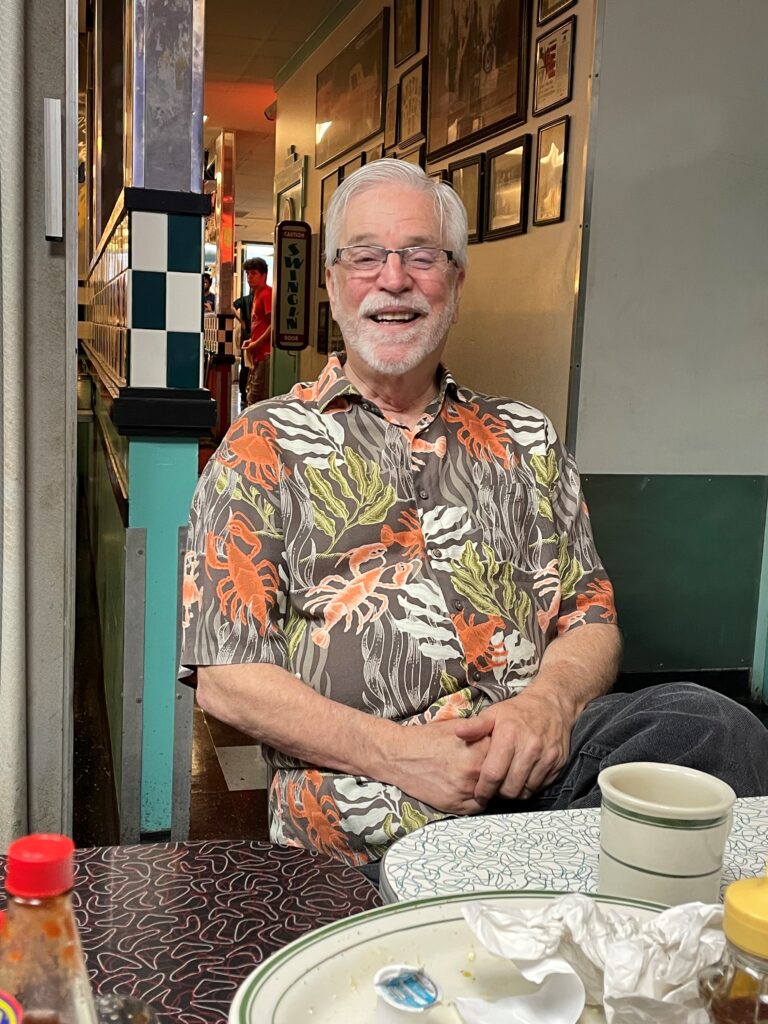
Nelson Warner has known Edwards for over twenty years. Their friendship includes serving together in the Bridge Ministry of Acadiana, a Christian community development and education ministry in the neighborhoods near N. University Avenue and Willow Street. Edwards officially serves as a board member and neighborhood liaison.
Warner says Edwards easily bridges any gap between judge and men of the neighborhood. “We have a bible study on Wednesdays at the Bridge. Jules has been coming to that for like 18 years. We used to eat dinner together. I’d see Jules over there talking with one of the men because they had some sort of legal issue and he’d give them advice. He is someone the men in the neighborhood can talk to for help. That’s the type of integration that we need, economic and social instead of leaving people out there by themselves.”
Warner, a retired geologist and the Bridge’s president, is fond of quoting Proverbs 4:27’s and Joshua 1:7’s admonitions not to “turn to the left or to the right” from God’s way. For Warner, their relevance today is profound, “The divisions in the world today, whatever they are, black or white, rich or poor, Democrat or Republican, these are left-right ways of man. God’s way is the higher way. The two ways left or right are actually ditches on each side of God’s way. We need more Christians who live between these man-made worlds. Jules is the one who has been doing it his whole life.”
Warner recognizes the potential liability for Edwards’s third way and lack of political party affiliation, “The problem with living between two worlds is that neither side trusts you. Their secular thinking requires things to be ‘this way or that way’. It’s not a ‘both and’, it’s an ‘either or’ in their minds. So, if you’re not in their ditch, they automatically put you in the other ditch and don’t trust you.”
Edwards’s journey of faith offers insight into his life now between worlds. Despite having received religious instruction throughout his formal education, he felt he had only a superficial foundation in Catholic doctrine. To correct this, he embarked on the rigorous training and 5-year education program to become a deacon in the Catholic church.
After the fourth year, Edwards discerned that he was not called to become a deacon. He explains how he reached this conclusion, “I tried to see where the Lord was leading. We learned a lot about the importance of the laity. We are all supposed to participate and live out our faith. The Jesuits have this method of discerning the spirits. At the end of a prayer, are you consoled or in desolation? The thought of seeing myself perform the role of a deacon caused me to be stressed, I was shaken. Seeing myself bringing Christ to my neighbor as a layperson, that gave me lots of consolation. My heart was glowing. That is what I believe Christ is calling me to do. The Holy Spirit is calling me to do.”
Now, Edwards continues to be guided through prayer. “My prayer life is seeking guidance of what God wants me to do, what should I be doing. I am grateful for what God has given me. I don’t often engage in petitionary prayer- ‘God give me this’ or ‘This is what I want.’ I want to make sure I am on God’s side. I don’t want to ask God to be on my side. Ultimately, I want to end up with a glorified body in the presence of God, Father, Son, Holy Spirit, and all of the saints. I want to live in communion with God’s people. This is not a gift I can earn, it’s a gift I can receive.”
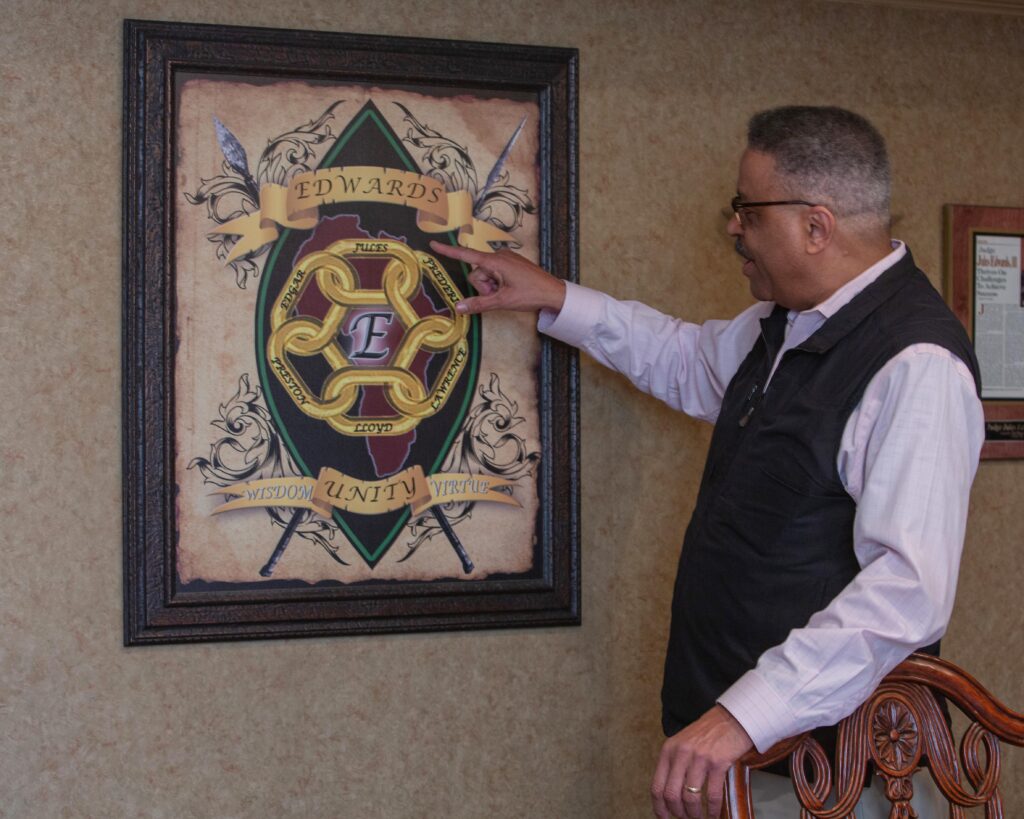
Edwards also sees regular chances to be a witness for Christ between the religious and secular worlds. “So, I regularly have opportunities to be in the presence with folks that ask me questions that may not be directly religious or directly biblical but I am able to have them think, ‘what is the most meaningful thing here?’ I have these conversations with people who are not religious at all and who are intensely secular. Many instances they end up being prepared to go, ‘I think I need to learn something about Christ, I need to get into a discipleship.’ I am not good at discipleship but I am very good at setting the table and helping people see that they are empty.”
Warner sees Edwards’s mission as God’s hand using him in the world without him being of the world. “I’ve not met a man who is a gracious as Jules. I’ve not met a man who is as faithful, truthful, or loving. Jules as a man has a right way of thinking right, caring right, and doing right. All that comes together for justice, which brings peace. I see all of those characteristics in him.”
Edwards’s life has been a bridge between black and white, civilian and military, rich and poor, red and blue, religious and secular. For him, a return to the bench offers another opportunity to be a bridge between despair and hope, “I want to convert people from hopelessness to hopefulness.”

